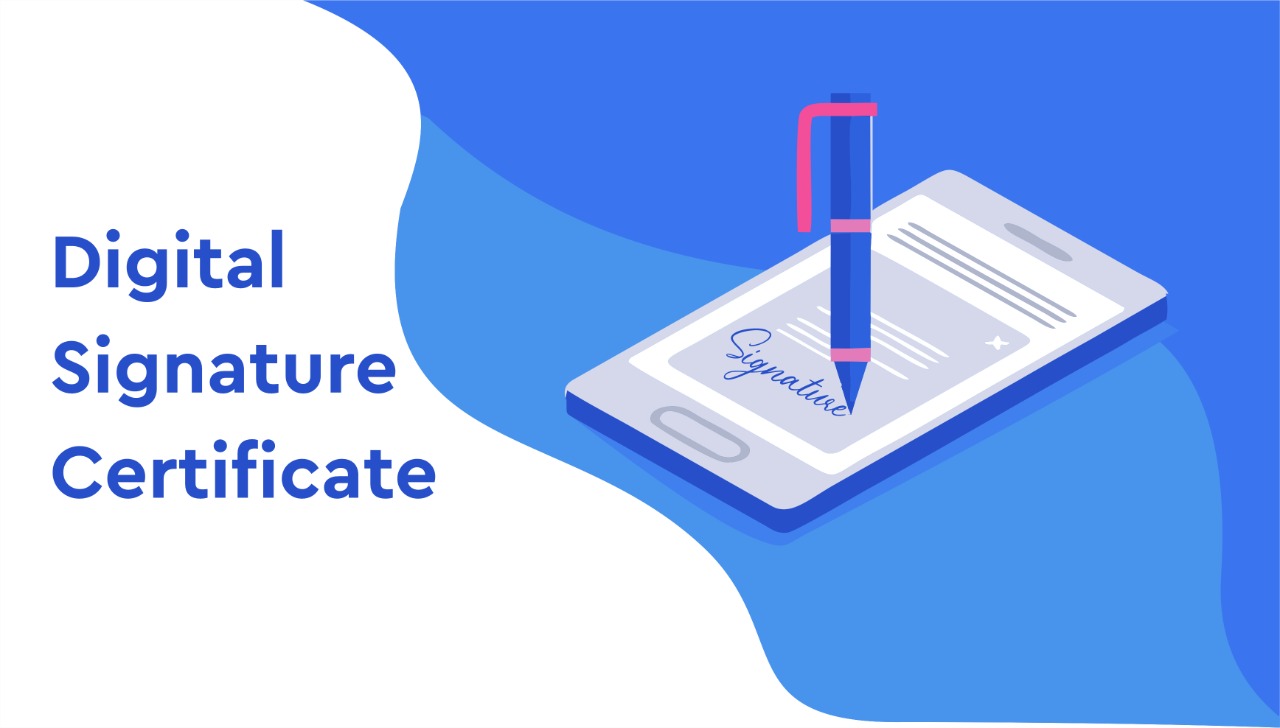In today’s digital age, where online transactions have become the norm and data security is paramount, the importance of digital signatures cannot be overstated. Digital Signature Certificate (DSC) have emerged as a key component in ensuring the authenticity, integrity, and security of electronic documents and transactions. From facilitating e-filing of taxes to enabling secure online communication, DSCs play a crucial role in various aspects of modern-day business and governance. In this article, we delve into the application, benefits, types, and procedures associated with Digital Signature Certificates.
Understanding Digital Signature Certificates (DSCs)
A Digital Signature Certificate is a secure digital key issued by a Certifying Authority (CA) that validates the identity of the holder when digitally signing documents online. It ensures the authenticity and integrity of electronic documents and messages, making them legally binding and tamper-proof. DSCs use public-key cryptography to create a unique digital fingerprint, or hash, of the document, which is then encrypted using the signer’s private key.
Applications of Digital Signature Certificates
E-Governance:
DSCs are extensively used in e-governance initiatives to streamline administrative processes, enhance transparency, and ensure the security of digital transactions. Government agencies employ DSCs for tasks such as online filing of tax returns, applying for licenses and permits, and signing contracts and agreements.
Banking and Finance:
In the banking and financial sector, DSCs are employed for secure online banking, electronic fund transfers, digital payments, and online trading. These certificates play a crucial role in ensuring the authenticity and integrity of financial transactions while safeguarding sensitive information from unauthorized access or tampering.
Legal and Contractual Agreements:
DSCs serve as a secure method for signing legal documents, contracts, and agreements electronically. They provide legal validity to electronic documents by verifying the identity of the signatory and ensuring that the document remains unchanged throughout the signing process, thus eliminating the need for physical signatures and paper-based documentation.
Online Communication and Collaboration:
In the realm of online communication and collaboration, DSCs enable secure email communication, document sharing, and collaboration platforms. By digitally signing emails and documents, users can authenticate their identity and protect the confidentiality and integrity of their messages and files.
Benefits of Digital Signature Certificates
Enhanced Security:
DSCs use advanced encryption techniques to ensure the security and integrity of electronic documents and transactions. They protect against unauthorized access, tampering, and forgery, thus mitigating the risk of fraud and data breaches.
Legally Binding:
Documents signed with DSCs hold the same legal validity as their paper-based counterparts, making them legally binding and admissible in courts of law. This ensures the enforceability of electronic contracts and agreements, saving time and resources associated with traditional paper-based processes.
Cost and Time Savings:
By eliminating the need for physical signatures and paper-based documentation, DSCs streamline processes, reduce paperwork, and expedite transaction cycles. This results in significant cost savings, increased efficiency, and faster turnaround times for businesses and organizations.
Compliance and Regulatory Requirements:
DSCs help businesses and individuals comply with various regulatory requirements and industry standards pertaining to electronic transactions and data security. They provide assurance that transactions are conducted in accordance with applicable laws and regulations, thereby mitigating legal and regulatory risks.
Types of Digital Signature Certificates
Class 1 DSC:
Class 1 DSCs are issued for verifying the email address of the certificate holder and are typically used for securing email communication and online access to portals and websites.
Class 2 DSC:
Class 2 DSCs are issued for both individuals and organizations and are used for electronic filing of documents with government agencies, online transactions, and e-tendering processes.
Class 3 DSC:
Class 3 DSCs offer the highest level of security and authentication and are typically used for participating in e-auctions, online bidding, and other high-value transactions that require stringent identity verification.
Procedures for Obtaining a Digital Signature Certificate
Step 1: Visit the Digital Signature Portal.
Step 2: Select the option according to your requirement.
Step 3: Then, Fill all the required details on the Digital Signature Certificate Application Form
Step 4: Make the online payment for your Digital Signature Application.
Step 5: Within 1-2 working hours you will receive your Digital Signature Certificate on your registered e-mail address.
Suggested Read: Digital Signature Certificate for Income Tax
Conclusion
Digital Signature Certificates play a pivotal role in enabling secure and legally binding electronic transactions across various sectors. By ensuring authenticity, integrity, and confidentiality, DSCs empower businesses, governments, and individuals to embrace the benefits of digitalization while mitigating risks associated with fraud and data breaches. Understanding the applications, benefits, types, and procedures associated with DSCs is essential for harnessing their full potential in the digital era.
Stay in touch to get more updates & news on Gossips!




